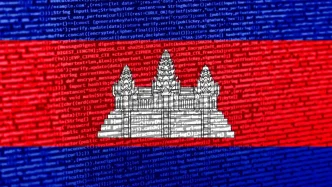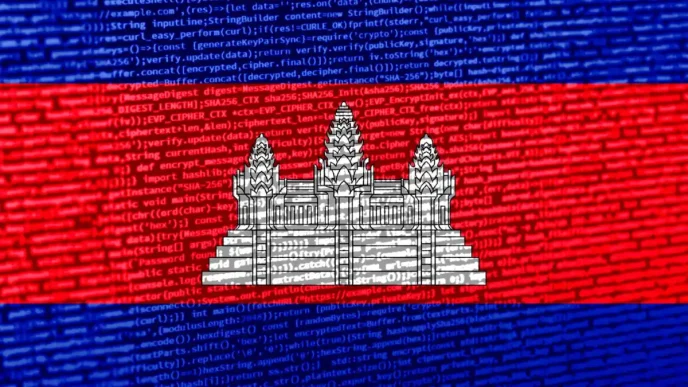Thai authorities have successfully rescued a 31-year-old Hong Kong woman from a Chinese-operated call-centre gang based on the Myanmar side of the border near Tak province. The operation, conducted on Sunday, was a collaborative effort between the Royal Thai Army and the Royal Thai Police, prompted by an alert from the Office of the Narcotics Control Board (ONCB) about the potential exploitation of Hong Kong citizens in the region. The woman, a Hong Kong passport holder, is set to be repatriated as soon as possible, according to army officials.
The rescue underscores the persistent challenge of cross-border crime in South East Asia, where porous borders and remote regions have become hotbeds for illicit activities such as human trafficking, online scams, and gambling operations. The area south of Myawaddy, opposite Tak’s Phop Phra district, is notorious as a hub for such gangs, often exploiting vulnerable individuals under coercive conditions.
A Coordinated Rescue Effort
The operation began after the ONCB received information that 12 Hong Kong citizens might have been forced to work for Chinese call-centre gangs or online gambling websites operating in Myanmar. These organisations are known to lure or abduct individuals, compelling them to participate in fraudulent schemes targeting victims worldwide. The ONCB relayed the intelligence to the Royal Thai Army, indicating that the individuals wished to cross into Thailand from the Myanmar border.
In response, the army sought assistance from Pol Col Nat Promthep, a police attaché at the Thai Embassy in Rangoon (Yangon), to coordinate with local forces controlling the area. The Democratic Karen Buddhist Army (DKBA), an ethnic armed group with influence in the region south of Myawaddy, played a pivotal role in facilitating the rescue. Through these efforts, the Hong Kong woman was safely brought back to Thai soil on Sunday.
While the army has confirmed plans for her swift return to Hong Kong, details about her condition or the circumstances of her captivity remain undisclosed. It is also unclear whether Thai authorities have located or are pursuing the rescue of the remaining 11 individuals reportedly trapped in similar situations.
A Hotspot for Cross-Border Crime
The border region between Thailand and Myanmar has long been a focal point for transnational crime. The area near Tak, particularly around Myawaddy, is a known stronghold for Chinese criminal syndicates operating call centres and online gambling rings. These groups often target vulnerable populations, including migrant workers and foreign nationals, exploiting them through coercion or deception. Victims are frequently subjected to harsh working conditions, with some reports suggesting physical abuse and restricted movement.
The involvement of ethnic armed groups like the DKBA in the region adds a layer of complexity to law enforcement efforts. While the DKBA’s cooperation was instrumental in this rescue, their control over parts of the border highlights the fragmented governance in Myanmar, especially following the military coup in 2021. This instability has allowed criminal networks to flourish, often with impunity, as central authority struggles to assert control over remote territories.
For Thailand, the challenge is twofold: securing its borders against illegal activities while navigating the delicate balance of international and regional diplomacy. The Royal Thai Army and Police have intensified patrols and intelligence-sharing initiatives in recent years, but the sheer scale of the border—over 2,400 kilometres of often rugged terrain—makes comprehensive oversight nearly impossible without sustained cross-border collaboration.
Broader Implications for Regional Security
This incident raises critical questions about the safety of foreign nationals in South East Asia’s border zones and the effectiveness of regional mechanisms to combat human trafficking and organised crime. The Association of Southeast Asian Nations (ASEAN) has repeatedly pledged to address these issues through frameworks like the ASEAN Convention Against Trafficking in Persons, Especially Women and Children. However, implementation remains uneven, with member states often prioritising national security over coordinated action.
The plight of the Hong Kong citizens also points to the global reach of these criminal enterprises. Call-centre scams, often masquerading as legitimate businesses, target victims across Asia, Europe, and North America, generating billions of dollars annually. The use of forced labour in these operations adds a human rights dimension to what is already a significant cybersecurity threat.
If confirmed, the involvement of 12 Hong Kong citizens in this particular case could prompt diplomatic discussions between Thailand, Hong Kong, and potentially China, given the reported nationality of the gang operators. However, there is no evidence at this stage to suggest official complicity or state-level involvement, and speculation about broader geopolitical motives must be treated with caution.
Challenges Ahead
While the rescue of the Hong Kong woman marks a small victory, it also highlights the scale of the problem facing Thai authorities and their regional counterparts. The remaining individuals, if still in captivity, face an uncertain fate, and the gangs responsible are likely to adapt their tactics in response to heightened scrutiny. For every person rescued, countless others remain trapped in exploitative conditions, often beyond the reach of law enforcement.
Thai officials have yet to announce specific measures following this operation, but public pressure may mount for stronger border controls and harsher penalties for traffickers. Community-based initiatives, such as awareness campaigns in vulnerable areas, could also play a role in preventing individuals from falling prey to such schemes. Meanwhile, international cooperation—particularly with Myanmar, despite its ongoing political turmoil—remains essential to dismantling the networks profiting from human misery.
A Call for Vigilance
The successful rescue of a Hong Kong woman from a criminal gang on the Thailand-Myanmar border is a testament to the dedication of Thai authorities and their willingness to collaborate across borders. Yet, it is also a sobering reminder of the pervasive threat posed by organised crime in the region. As long as instability and economic disparity persist, criminal syndicates will continue to exploit the gaps in governance and security.
For global readers, this story serves as a call to remain vigilant about the unseen costs of digital fraud and the human lives caught in its web. For policymakers in South East Asia, it is a prompt to prioritise not just enforcement, but also prevention and protection, ensuring that borders do not become battlegrounds for exploitation.
This article has been categorised as a political and crime-related story due to its implications for regional security and cross-border governance. It reflects the ongoing struggle to balance national interests with humanitarian imperatives in one of the world’s most complex geopolitical landscapes.














